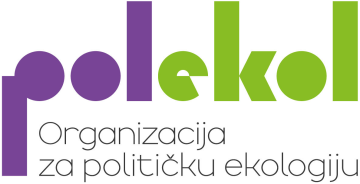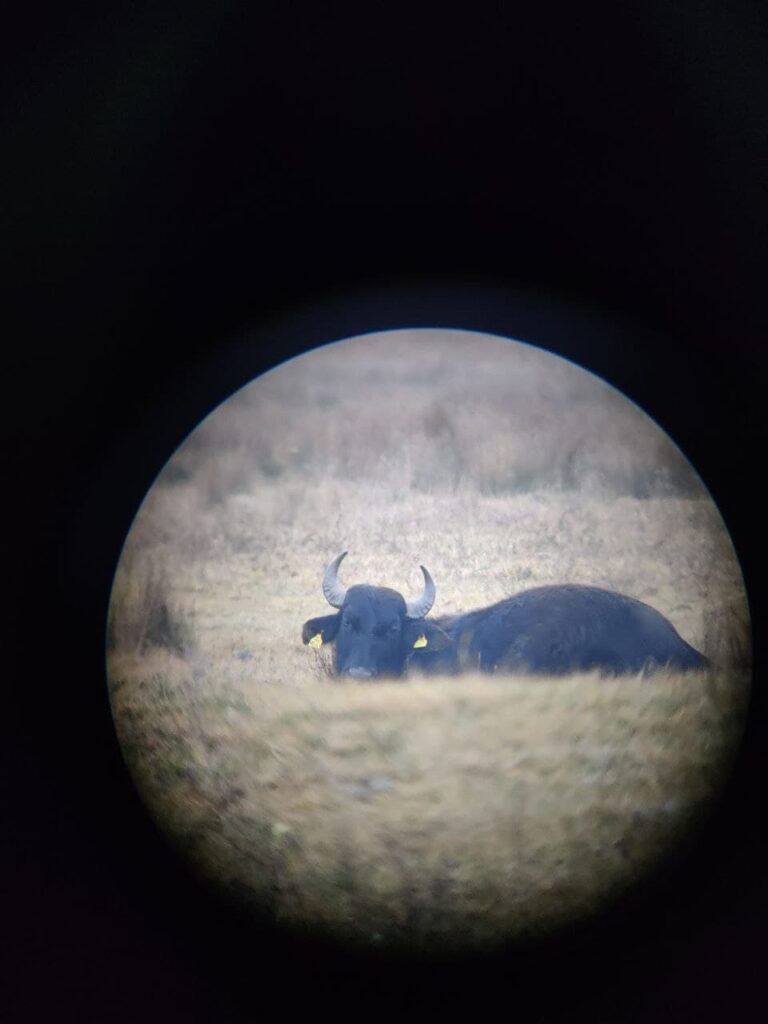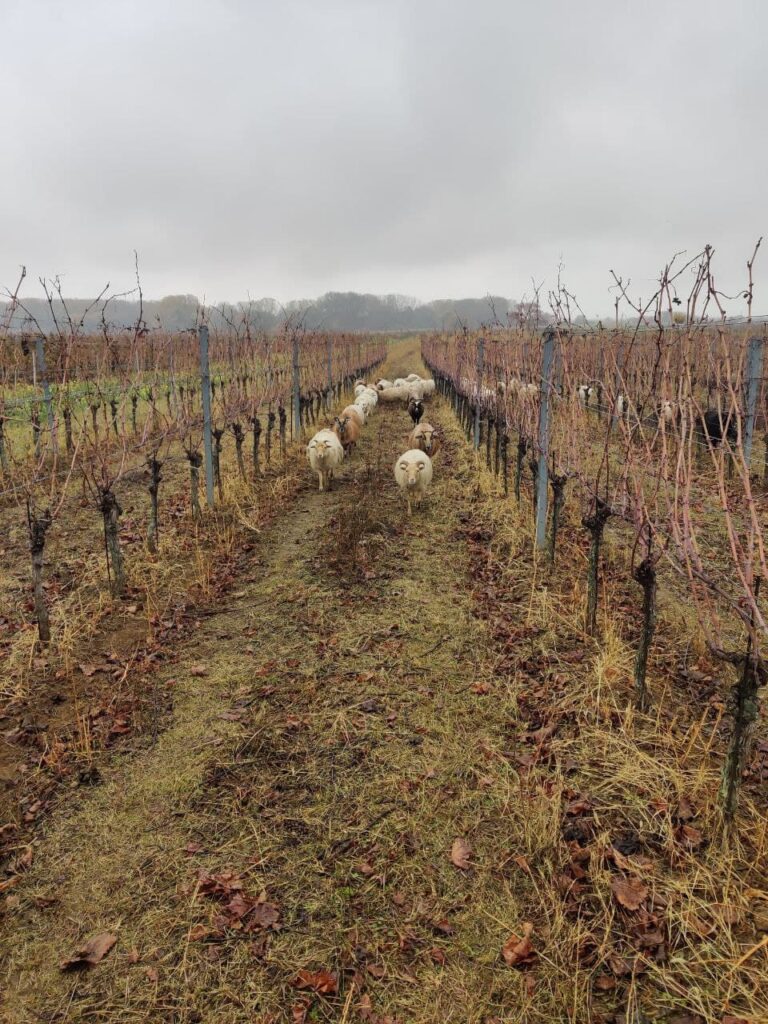U okviru projekta “Pravičan i ugljenično-neutralan turizam”, Organizacija za političku ekologiju – PolEkol je, tokom 2020. i 2021. godine, zajedno sa organizacijama iz 6 evropskih zemalja (Austrija, Hrvatska, Severna Makedonija, Španija i Srbija) po rukovodstvom Evropskog Zelene fondacije (GEF) učestvovala u istraživanju potencijala razvoja održivog turizma i transformacije postojećih praksi koje bi dovele do prosperiteta lokalnih zajednica i ukupne ekonomije, a istovremeno omogućile očuvanje prirodnih bogatstava za buduća pokolenja. Ovaj projekat započet je 2020. godine mapiranjem negativnih primera razvoja turizma, koji su imali destruktivni uticaj na životnu sredinu i prirodne lepote okruženja, i/ili uticale na živote ljudi koji tu žive. Cilj druge godine projekte bio je da se istraže, identifikuju i stvore novi uslovi za zajedničku akciju koja bi dovela do pozitivne promene. Ideja je da se izgradi jaka evropska transnacionalna zajednica koja je zainteresovana za transformaciju turizma u održivu granu i smanjenje njegovog ukupnog učešća u emisiji CO2. U okviru druge faze projekta, osim istraživanja koja su imala za cilj da prikažu pozitivne prakse ili potencijale razvoja održivog turizma u Evropi, učesnici su imali prilike da budu deo nekoliko studijskih poseta.
Druga studijska poseta partnera organizovana je u periodu od 12.11.2021 – 14.11.2021. u gradu Rust u Austriji na poziv lokalne partnerske organizacije FREDA. Priroda ove posete bila je manje fokusirana na radni aspekt a više na edukacijski dok su partneri neformalno razmenjivali iskustva i mišljenja u vezi sa turom. Čitava poseta organizovana je tako da partneri iskuse ponudu održivog turizma grada Rusta i kroz neposredni razgovor dobiju uvid u različite modele i principe preduzetništva i menadžmenta u okviru održivog turizma.
Partneri su bili smešteni u hotelu Burgerhaus sa specifičnim konceptom kombinacije turističkog boravka i umetnosti a u skladu sa minimizovanjem pritiska koje ovaj biznis vrši na životnu sredinu. Ovaj smeštaj preuređen je od imanja koje je originalno oformljeno čak u 16. veku i predstavlja malo preduzeće koje vodi nekoliko entuzijasta.
Prvog dana program je podrazumevao posetu Nacionalnom parku i Biološkoj stanici Neusidler See u mestu Ilmitz, nedaleko od granice sa Mađarkom u predelu jezera Nežider koje se prostire na površini od 183km kvadratnih. Ovo jezero je specifično jer se procesi oticanja vode ne dešavaju i ono je najveće jezero tog tipa na teritoriji Evrope i ima znatan uticaj na mikroklimu regije.
Biološka stanica koja se nalazi nedaleko od obale, više od 70 godina državi pruža usluge istraživanja i izveštavanja dok širom teritorijom Nacionalnog parka upravljaju u saradnji sa Mađarskim institucijama. Pored ovih aktivnosti bave se i ispitivanjem vodnih dobara, uticaja klimatskih promena na živi sve u regionu kao i edukacijom o biološkim naukama i klimatskoj krizi, sa jakim fokusom i prilagođenim pristupom prema omladini.
Organizovana je i vođena tura centra i Nacionalnog parka gde su partneri razgovarali o načinima na koje se Centar finansira, strukturi upravljanja kao i o metodama i praksama koje uprava Nacionalnog parka koristi kako prakse njegovog poslovanja ne bi poremetile prirodni balans ove prirodne regije.
Drugog dana studijske posete organizovana je poseta i prezentacija lokalnog uzgajivača vinove loze koji je govorio o vraćanju “starim” praksama u proizvodnji. Njegova ideja je da njegova proizvodnja vina postane ugljenično negativna, tj. da apsorbuje više gasova sa efekotom staklene bašte nego što ispusti. Iz tog razloga umesto pesticida u proizvodnji koristi električnu energiju dobijenu iz solarnih panela, ovce i organsko đubrivo. Jedan od ciljeva mu je takođe edukacija svojih sugrađana i širenje svesti o klimatskoj krizi.
Nakon tura, partneri su kroz razgovor evaluirali posetu i odredili dalje korake u projektu.
////English
Within the project „Fair and carbon-neutral tourism“, the Organization for Political Ecology – PolEcol, during 2020 and 2021, together with organizations from 6 European countries (Austria, Croatia, Northern Macedonia, Spain and Serbia) under the leadership of Green The European Foundation (GEF) participated in researching the potential of sustainable tourism development and transformation of existing practices that would lead to the prosperity of local communities and the overall economy, while enabling the preservation of natural resources for future generations. This project started in 2020 by mapping negative examples of tourism development, which had a destructive impact on the environment and the natural beauty of the environment, and / or affected the lives of people living there. The goal of the second year of the project was to explore, identify and create new conditions for collective action that would lead to positive change. The idea is to build a strong European transnational community that is interested in transforming tourism into a sustainable industry and reducing its overall share in CO2 emissions. In the second phase of the project, in addition to research aimed at showing positive practices or potentials for the development of sustainable tourism in Europe, participants had the opportunity to be part of several study visits.
The second study visit of the partner was organized in the period from 12.11.2021 – 14.11.2021. in the city of Rust in Austria at the invitation of the local partner organization FREDA. The nature of this visit was less focused on the work aspect and more on the educational aspect while the partners informally exchanged experiences and opinions related to the tour. The entire visit was organized so that the partners would experience the offer of sustainable tourism in the city of Rust and through a direct conversation gain insight into various models and principles of entrepreneurship and management within sustainable tourism.
The partners were accommodated in the Hotel Burgerhaus with a specific concept of a combination of tourist stay and art and in accordance with the minimization of the pressure that this business exerts on the environment. This accommodation has been refurbished from a property that was originally formed as early as the 16th century and is a small business run by a few enthusiasts.
On the first day, the program included a visit to the Neusidler See National Park and Biological Station in Ilmitz, not far from the border with Hungary in the area of Lake Neusieder, which covers an area of 183 square kilometers. This lake is specific because the processes of water runoff do not happen and it is the largest lake of this type in Europe and has a significant impact on the microclimate of the region.
The biological station, located not far from the coast, has been providing research and reporting services to the state for more than 70 years, while the entire territory of the National Park is managed in cooperation with Hungarian institutions. In addition to these activities, they also deal with the study of water resources, the impact of climate change on life in the region, as well as education on biological sciences and the climate crisis, with a strong focus and tailored approach to youth.
A guided tour of the Center and the National Park was organized, where the partners discussed the ways in which the Center is financed, the management structure and the methods and practices used by the National Park Administration so that its business practices would not disturb the natural balance of this natural region.
On the second day of the study visit, a visit and presentation of a local grape grower was organized, who spoke about returning to the „old“ practices in production. His idea is to make his wine production carbon negative, that is. to absorb more greenhouse gases than it emits. For that reason, instead of pesticides, it uses electricity obtained from solar panels, sheep and organic fertilizers in its production. One of his goals is also to educate his fellow citizens and spread awareness about the climate crisis.
After the tour, the partners evaluated the visit through conversation and determined further steps in the project.








